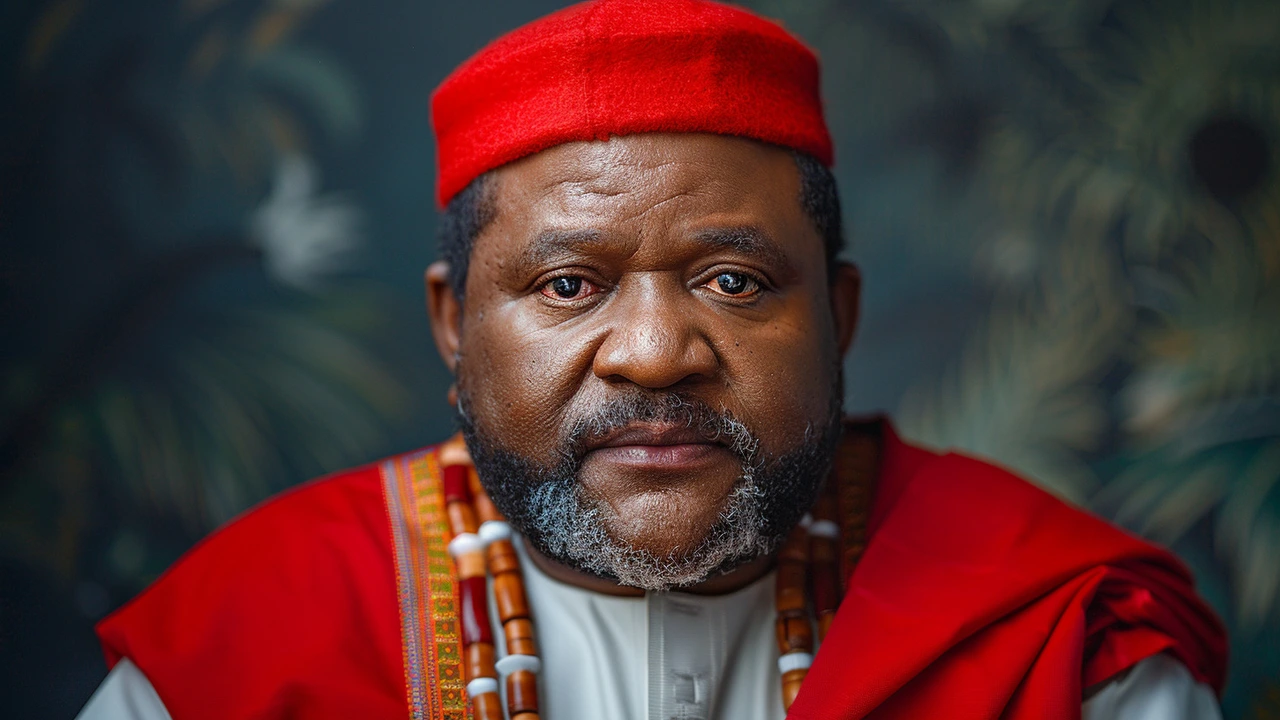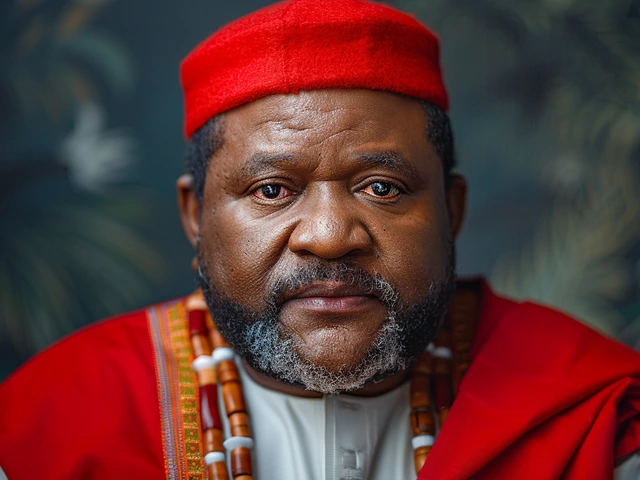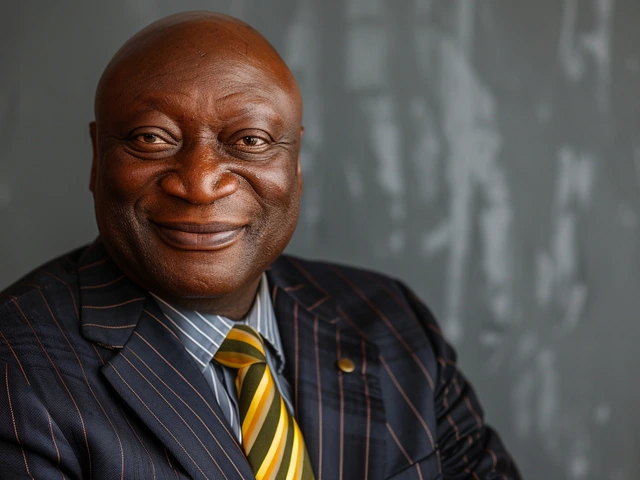
Introduction
In a recent revelation that has stirred robust dialogue among Nigerians, Kanayo O. Kanayo, a seasoned actor from the vibrant Nollywood industry, has propelled the age-old tradition of children giving their first earnings back to their parents into the digital spotlight. This gesture, which he ardently articulated through a social media video, underscores the profound respects for parental blessings over the increasingly popular practice of bestowing such financial gifts to spiritual leaders.
The Cultural Underpinnings of Kanayo's Advocacy
The incident that sparked this cultural conversation featured Kanayo’s acknowledgment of his son Clinton Mbaise's financial aptitude, as the young man presented him with N50,000, emblematic of his debut revenues from his work in the film sector. This act, resonant with traditional Nigerian values, is seen as a crucial rite of passage that not only acknowledges the parental role in a child’s success but also ensures the familial lineage is strengthened through blessings and guidance.
Pertinence of the First Salary Tradition
The tradition of giving the first salary to one's father, as advocated by Kanayo, might seem antiquated to some, but it holds a reservoir of cultural significance. This customary practice roots deeply in imparting financial wisdom and enlisting parental guidance. The ritual not only fosters familial bonds but also serves as a symbolic gesture of gratitude and recognition towards the sacrifices made by parents throughout the years.
Comparative Cultural Practices
In many cultures around the world, similar practices are evident where youths, upon achieving their first income, return a portion to their elders as a symbol of respect and thanksgiving. This cross-cultural resemblance highlights a universal sentiment of reverence towards the foundational figures in one's life, contrasting sharply with the modern inclination to allocate such earnings towards spiritual or religious entities.
Dialogues Stirred in the Community
Following Kanayo O. Kanayo's post, discussions burgeoned across various platforms. Detractors and proponents alike voiced their opinions, reflecting the diverse ideologies present in contemporary Nigerian society regarding financial stewardship and cultural fidelity. Many supported Kanayo's viewpoint, seeing it as a necessary step in preserving cherished customs in a rapidly modernizing world. Others argued for a more personal approach, where individuals decide independently without societal pressure.
Impact on Parental Relationships
The decision to transfer one's initial earnings to one’s parents can deeply enhance the relational dynamics. It is seen not just as an act of giving, but one of acknowledging, thanking, and reinforcing the parental guidance that carved paths for success. Kanayo O. Kanayo's insistence on this tradition is rooted in a desire to maintain this connective thread, cultivating an environment where financial achievements are shared triumphs rather than individual conquests.
Reflecting on the Shifts in Societal Values
In an eroding landscape of traditional mores, the voices like Kanayo O. Kanayo ring pertinent, echoing the sentiments of many who find themselves caught between the historical reverence for customs and the pressures of contemporary global culture. This ongoing dialogue beckons a sincere examination of priorities, where the essence of financial success and its symbolic offerings are balanced against the backdrop of acute cultural consciousness.
Conclusion
Kanayo O. Kanayo's endorsement of this traditional practice serves as a poignant reminder of the profound cultural roots that continue to shape Nigerian societal values. As society evolves, so too does the interpretation of these traditions, perhaps pointing towards a future where such customs are viewed not merely as archaic relics but as foundational principles guiding modern sensibilities. The debate continues to unfold, steering public opinion on the path of cultural reckoning and adherence.








Giving your first paycheck to Mom and Dad is a beautiful reminder that family comes first.
In the echo of a child’s first coin, we hear the applause of ancestors.
The moment a young professional hands a crisp N50,000 to the ones who raised him, it is more than a transaction-it is a rite of passage steeped in love.
It tells the parents that their sacrifices were not in vain and that the next generation honors that debt with gratitude.
In many African homes, this practice teaches financial humility before pride can take root.
Kids learn early that wealth is a communal resource, not a solitary trophy.
When the eldest son offers the first salary, it also signals to siblings that the family’s prosperity is a shared journey.
The symbolism is powerful: the parents’ blessing becomes a seed that nurtures future successes.
Even in diaspora communities, you’ll hear elders recount how this custom kept families tight during tough times.
That narrative moves beyond nostalgia; it is a living lesson in inter‑generational solidarity.
Critics claim the ritual is outdated, yet they overlook how it embeds financial literacy in the heart of the youth.
A teenager who learns to allocate a portion of his earnings learns budgeting before the bank even opens an account.
Moreover, the act builds emotional bonds that money alone cannot buy.
Parents feel seen, appreciated, and motivated to keep guiding their children.
On the flip side, if the money vanishes into unrelated expenses, the family’s trust can erode.
So keeping the tradition alive doesn’t mean blind obedience; it means a dialogue about responsibility and gratitude.
Let’s celebrate Kanayo’s reminder with a happy heart, a sprinkle of emojis 😊✨, and a renewed pledge to honor the ones who paved our way!
Sure, because handing over cash to the folks automatically fixes everything. Tradition never evolved, right? Maybe we should also sacrifice our Wi‑Fi routers to the ancestors.
This whole "first salary" thing smells like outdated sentimentality-stop romanticizing financial control and let adults make their own choices!
Yo, I get the vibe. It’s cool to honor the fam, but if you’re vibing with modern hustle, maybe keep some cash for yourself too. Balance, man.
Look, we all respect traditions, but we also gotta think about personal agency. If you’re cool with it, great-if not, that’s your call too.
Hey everyone, let’s keep the conversation uplifting! 🙌 Honoring parents is amazing, and we can also empower youths to manage money wisely-win‑win!
These customs are a relic; progress means letting individuals decide without pressure.
Wake up! This is just another way for elites to keep us in financial servitude-don’t be fooled!!!